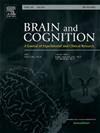Effect of transcranial direct current stimulation on learning in older adults with and without Parkinson’s disease: A systematic review with meta-analysis
Abstract
Older adults with and without Parkinson’s disease show impaired retention after training of motor or cognitive skills. This systematic review with meta-analysis aims to investigate whether adding transcranial direct current stimulation (tDCS) to motor or cognitive training versus placebo boosts motor sequence and working memory training. The effects of interest were estimated between three time points, i.e. pre-training, post-training and follow-up. This review was conducted according to the PRISMA guidelines (PROSPERO: CRD42022348885). Electronic databases were searched from conception to March 2023. Following initial screening, 24 studies were eligible for inclusion in the qualitative synthesis and 20 could be included in the meta-analysis, of which 5 studies concerned motor sequence learning (total n = 186) and 15 working memory training (total n = 650). Results were pooled using an inverse variance random effects meta-analysis. The findings showed no statistically significant additional effects of tDCS over placebo on motor sequence learning outcomes. However, there was a strong trend showing that tDCS boosted working memory training, although methodological limitations and some heterogeneity were also apparent. In conclusion, the present findings do not support wide implementation of tDCS as an add-on to motor sequence training at the moment, but the promising results on cognitive training warrant further investigations.

 求助内容:
求助内容: 应助结果提醒方式:
应助结果提醒方式:


